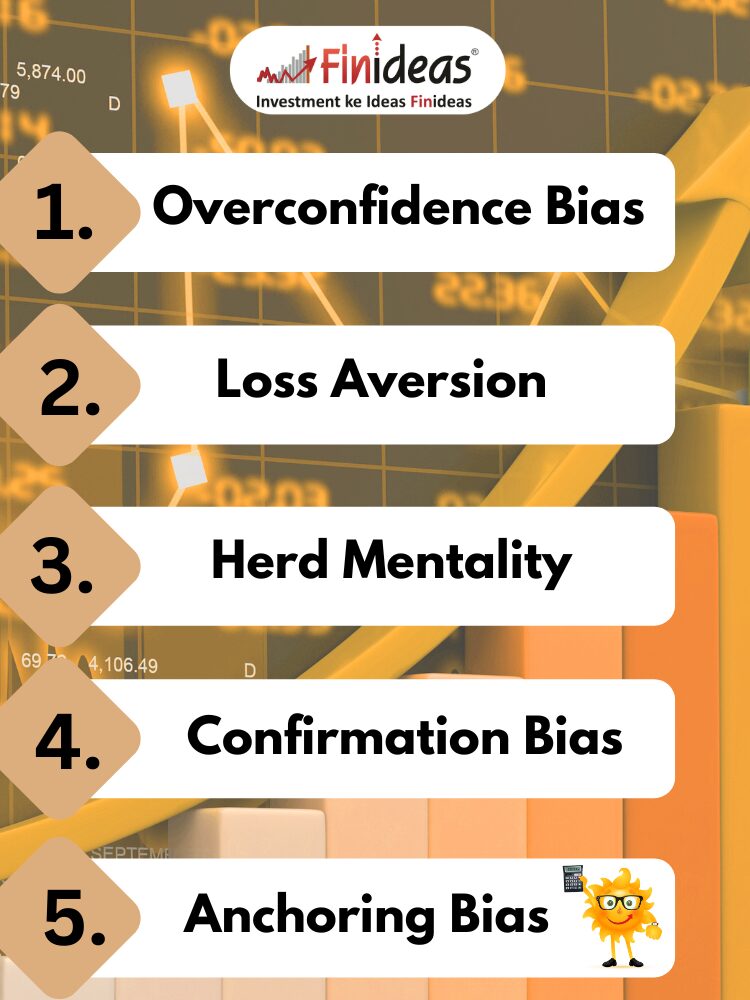Behavioral biases affecting investor returns
Introduction:
Investing in financial markets is not merely a game of numbers; it’s also about mastering the psychological aspect. Investors often believe that their decisions are solely based on rational analysis. However, the reality is far from this ideal. Behavioral biases, deeply ingrained in human psychology, significantly influence investment decisions and, consequently, investor returns. In this blog, we’ll delve into some of the most prevalent behavioral biases and explore their implications for investment outcomes.
Overconfidence Bias:
One of the most pervasive biases affecting investors is overconfidence. Overconfident investors tend to overestimate their abilities and knowledge, leading them to take excessive risks. They may trade more frequently, incur higher transaction costs, and often deviate from their long-term investment strategies. Consequently, overconfident investors may experience suboptimal returns due to their misplaced faith in their skills.
If you are interested in long term investment , then you must know about Index Long Term Strategy.
Loss Aversion:
Loss aversion refers to the tendency of investors to feel the pain of losses more acutely than the pleasure of equivalent gains. This bias often leads investors to make irrational decisions, such as holding onto losing investments for too long in the hope of a rebound, or selling winning investments prematurely to lock in gains. As a result, loss-averse investors may miss out on potential opportunities for portfolio growth and hinder their overall returns.
Herd Mentality:
Humans are social beings, and this inclination towards conformity extends to the realm of investing. Herd mentality describes the phenomenon where investors follow the actions of the crowd rather than conducting independent analysis. While herd behavior can sometimes lead to short-term gains as assets are bid up by the collective action, it can also contribute to asset bubbles and subsequent market crashes. Investors who succumb to herd mentality often buy at the peak and sell at the bottom, eroding their returns in the process.
Confirmation Bias:
Confirmation bias occurs when investors seek out information that validates their existing beliefs while dismissing contradictory evidence. This bias can result in a distorted perception of reality and lead investors to make suboptimal decisions. For instance, an investor bullish on a particular stock may ignore warning signs of its declining fundamentals, leading to significant losses. To mitigate confirmation bias, investors must actively seek out diverse perspectives and challenge their own assumptions.
Anchoring Bias:
Anchoring bias refers to the tendency of investors to rely too heavily on a specific piece of information or reference point when making decisions. This reference point, or “anchor,” often distorts their judgment and prevents them from fully considering new information. For example, investors may fixate on the price at which they purchased a stock, refusing to sell even when the fundamentals deteriorate, in the hope of recouping their losses. This reluctance to adjust their anchor can result in missed opportunities and diminished returns.
Have you ever recognized any of these behavioral biases influencing your own investment decisions? How did you address them, and what were the outcomes? Comment Down Below
Conclusion:
Behavioral biases are a fundamental aspect of human psychology that significantly impact investment decisions and, consequently, investor returns. By recognizing these biases and adopting strategies to mitigate their effects, investors can enhance their decision-making processes and improve their long-term financial outcomes. Cultivating self-awareness, conducting thorough research, and maintaining discipline are crucial steps in overcoming these cognitive pitfalls. Ultimately, mastering the psychological aspects of investing is just as important as understanding the intricacies of financial markets.
Happy Investing!
This article is for education purpose only. Kindly consult with your financial advisor before doing any kind of investment.


